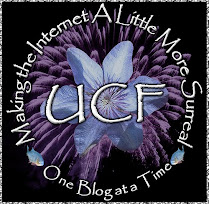Today is a very sad day for me, as Beverly Cleary, whose books helped make me a lifelong bibliophile, has passed away at the age of 104.
Ramona the Feminist
Beware the Ides of March
Today has been kind of a strange day.
As many of you know, today is the birthday of my twin children, Moe and the Smart Son. Since we lost Moe to suicide in 2013, this day has been a tough one for me, and given how tough her death anniversary was for me in 2020, I really had no reason to anticipate this day would be anything other than a bloody train wreck.
But it isn't. The first thing I thought of when I woke up was the fact that it was the Smart Son's birthday and I needed to transfer some birthday bucks to his PayPal account. Not the twins' birthday, just the birth of my surviving child. In fact, I didn't even think of Moe's birthday until Sister Stacey sent me a text early this morning letting me know she was thinking about me, and it still took me a second to realize what in the Sam Hill she was talking about.
I'm not sure how I feel about this.
On the one hand, I have guilt that Moe wasn't the first thing I thought of this morning. I do still think about her daily, but she's no longer the first thing I think about as soon as I wake up. And when I compare my almost-non-reaction today to my emotional reaction in years past, it almost seems as if her presence (and absence) in my life is no longer as important to me as it once was.
On the other hand, moving forward with my life (and taking part in other people's lives as they move on, as well) is the natural order of things, I suppose. Should I be happy that I can think of her with love and gratitude without also experiencing heart-wrenching grief? I honestly don't know. Losing her, especially to mental illness and suicide, is without exception the worst thing that has ever happened in my life.
Is the fact that my strength in managing my grief is increasing a sign of healing and hope? Or is it a sign that my grief reactions are changing because she's not as important to me now that there're some years between her death and now?
I wish I knew.
Moe would have been 30 years old today. I miss you, Pumpkin.






